Project Sites
Listed below is a series of websites that demonstrate authentic tasks.
Research Preparation: Research Methods |
|
|---|---|
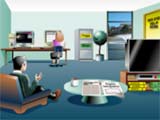 |
In this learning environment, students do not learn research methods by studying texts describing research methodologies and appropriate applications. Instead they work virtually in a graduate research centre where they are given the task of investigating the closure of a rural school. more... |
Virtual Records: Writing in Organisations |
|
|---|---|
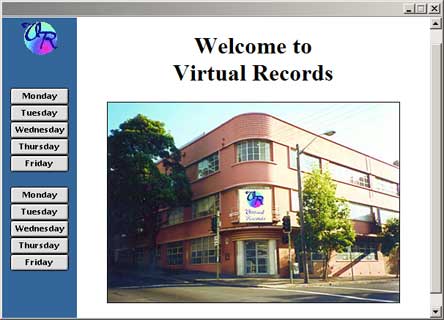 |
In Writing in Organisations students learn business communication skills by accepting temporary employment in a virtual recording company. They are given a complex task to complete, where they need to prepare a report on whether the company would benefit from the introduction of an internal newsletter. In order to complete this activity, they make appointments, keep a diary, 'interview' the director and other employees, and write letters, and memos as required. more... |
North American Fiction and Film |
|
|---|---|
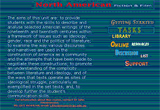 |
In North American Fiction and Film, students study novels written by North American writers such as Melville, Hemingway, DeLillo, Vonnegut, Atwood, and Esquival, and they view film versions of the same works (if appropriate). In the course, they are given the role of Editorial Board Members of an online scholarly journal to which they submit book reviews and articles based on their study of the literature. The students collaboratively design a guide for novice reviewers on how to write a book review. The teacher of the course is the journal editor, and an edition of the journal is published online at the end of the semester. more... |
Coastal and Marine Systems |
|
|---|---|
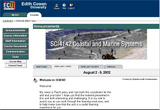 |
Coastal and Marine Systems is a course where activities are specifically designed to mirror the typical problems that a coastal manager or an environmental consultant might encounter. For example, in one major task, it is proposed that as part of the approval for a marina, annual monitoring of water quality is required. The monitoring encompasses water inside the marina as well as a site several hundred meters outside the marina, in well-flushed ocean conditions. The students are provided with a set of real data collected by the course teachers from inside and outside the marina, and they are required to understand, analyse and interpret the data and draw conclusions as to whether the water quality within the marina is different to that outside, and if so explain the possible causes. The evaluation is presented as a report within the context of the renewal of the marina license. more... |
Sensitive Examination Technique |
|
|---|---|
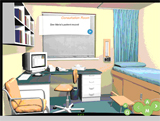 |
In a multimedia resource to teach medical students issues associated with the performance of cervical screening tests, the Sensitive Examination Technique, students follow the medical histories of five different patients and make choices about how they will handle each examination. The learning environment is set in a realistic doctor's surgery, and students can navigate around the spaces according to need. The emphasis in the resource is for the students to think about the nature of the procedure and its execution from the woman's perspective. At all times, the fostering of a positive doctor-patient relationship is paramount. The authentic task is to manage the examination of one female patient, and to make decisions and keep records on the diagnosis and management of this particular case. more... |
Origins and Evolution of Life |
|
|---|---|
 |
In Origins and Evolution of Life an introductory biology course for online delivery students investigate a simulation of the discovery of new life forms, and are introduced to the interpretation of microscopic images of cellular structures. In the scenario, students are given a role as biologist-one member of an expedition to a remote lake in Siberia where several microorganisms are found that cannot be classified. They 'collect' the specimens and return to the university to analyse them. On the website, they are provided with images of unicellular organisms apparently unknown to science. Students are assigned to groups of four where they analyse the specimens and prepare a report. more... |
© 2006 Faculty of Education, University of Wollongong.